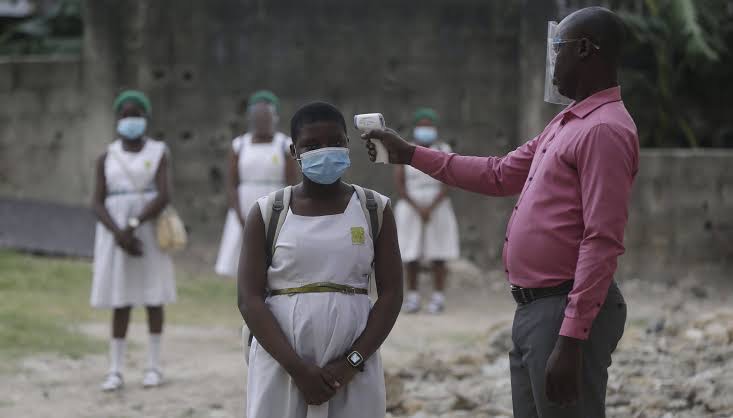A Professor of Health Economics, Prof. Obinna Onwujekwe, has appealed to the Federal and State Governments to be cautious with the schools reopening plans.
SEE ALSO: NDE Concludes Arrangements To Train 2,200 Youths In Kano
Onwujekwe, who also serves as the Director of Research, University of Nigeria (UNN), Nsukka, made the plea during the Nigerian Academy of Science Virtual Media Roundtable on Thursday in Lagos.
The News Agency of Nigeria (NAN) reports that theme of the programme was “COVID-19 Infection and You.”
Onwujekwe, also Professor of Health Economics, Systems and Policy, in UNN,
said that proper preparation was not in place for safe reopening of the schools.
According to him, there is no evidence to support the reopening of schools; governments had not done the cost benefit analysis of the plans to reopen the schools.
“Some countries that opened their schools for resumption have closed back.
“In U.S, it’s a hot debate whether to reopen schools or not. Why the rush in Nigeria without adequate infrastructure in place?
“I thought they would have used this period of COVID-19 to install running water in schools, to ensure that students are washing their hands, but that hasn’t been done.
“I think it’s a mistake, because we haven’t made proper preparations for safe reopening of schools, which is a failing of the risk communication aspect of COVID-19.
“We feel that because the numbers of cases are reducing, people not wearing face masks and mingling together, nor adhering to other safety protocols, means that things are normal,” he said.
Onwujekwe, also a member of the Ministerial Expert Advisory Committee on COVID-19, advised that only the final year students should be allowed to resume, while resumption of other students should be later.
He stressed that the consequences of allowing all students to resume would far outweigh the benefits being promoted by advocates of school reopening.
Also, Prof. Rotimi Jaiyesinmi, noted that students might get infected with the virus without much impact on them, and become a silent carrier that transmits to vulnerable people in their environment.
Jaiyesinmi, an Associate Medical Director for Patient Safety, Basildon University Hospital, U.K, advised that in the absence of a vaccine for the virus, students must depend on non-pharmaceutical measures to protect themselves.
He listed the non-pharmaceutical measures to include: the use of face masks, handwashing, physical distancing, and back to back sitting arrangements, to reduce their risk of infection.
Commenting, Prof. Chinedum Babalola, Vice-Chancellor, Chrisland University, Abeokuta, said that studies should be ongoing to ascertain if there’s a spike in the number of COVID-19 cases when schools resume.
Babalola is also of Pharmaceutical Chemistry and Pharmacokinetics in the university.



Leave a Reply